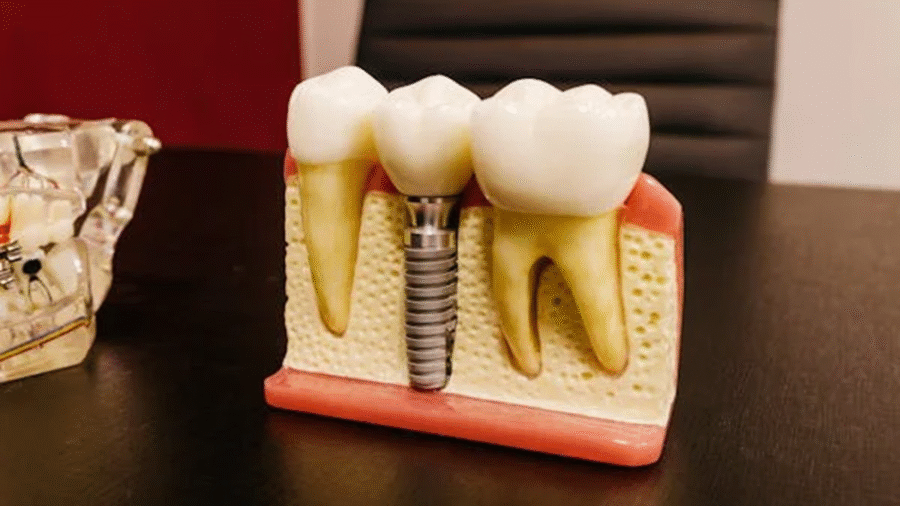Having damaged or broken teeth can have a detrimental effect on your overall health. This includes hampering the way you speak, eat, or even look. Fortunately, modern dentistry has found many effective ways to replace your damaged teeth. A few common options include dentures, crowns, bridges, and even root canal therapy to rehabilitate and save infected teeth.
Table of Contents
Another popular and highly effective dental treatment is known as dental implant restoration, and it’s easy to see why this technique is becoming so popular. This post takes a closer look at what dental implants are, and we also share the signs that will let you know if you should consider this option.
Understanding What Dental Implants Are
You may have been advised to get dental implants. Or you know someone who is preparing to get this type of procedure, and you’re wondering if it will work for you. Here’s what you need to know.
Essentially, there are two dental implant procedures to be aware of. The first is referred to as the all-on-4 dental option and involves strategically placing four titanium posts into your gums on the same arch. The posts fuse with the bone in your gums and form the basis for new teeth, which are placed on a plate that rests on the posts. The gaps in your mouth are then filled with new teeth.
The other procedure is referred to as an all-on-4, and the only clear difference between these procedures is that the all-on-4 only has four posts, while the all-on-x can have up to six or eight posts. The number of posts you need will depend on the number of gaps you have in your mouth.
Your prosthodontist will use titanium as this material is generally the preferred choice because of its durability, strength, and compatibility with existing bone and tissue. In addition to this, titanium posts are easy to maintain, and you can easily incorporate care into your daily dental routine.
Instances When Dental Implants May Not Work
Despite having a very high success rate, dental implants aren’t suitable for everyone. Factors such as overall health, poor oral hygiene, or insufficient jawbone density will prevent the implants from fusing with the gum bone.
Dental Implants May Be the Solution You’ve Been Searching For
You may think that you’ll manage just fine with a few missing teeth. However, the reality is that missing and broken teeth can increase your risk of developing gum disease, inflammation, and regular dental abscesses. Our experts have compiled a list of the top indicators that may make you perfect for dental implants.
1. You Have Several Chipped Teeth
Having chipped teeth is one of the top signs that your gums may be strong enough to sustain dental implants. This is especially the case if the piece of tooth in your gum is still healthy. Healthy gums and bones are essential for dental implants to fuse to. In some extreme cases, you may need to undergo prior bone grafting surgery to improve the bone density. Starting with strong bones is essential.
2. Your Missing Teeth Make Chewing Difficult
One of the biggest inconveniences of having missing teeth is that it becomes difficult to chew certain foods. This can even see you avoiding certain foods, which can include essentials such as fruit and vegetables. If your mouth hurts when you eat, or your gums bleed during meals, it may be time to ask your prosthodontist to assess your bone density for a potential dental implant.
3. Dentures Aren’t Working for You
You may already have opted for partial dentures to resolve the issues in your mouth. If you have done this, you’re finding yourself dealing with loose dentures that are uncomfortable and painful.
Instead of having your dentures adjusted, you may want to consider dental implants. Dental implants are permanent and long-lasting. There’s no chance of them moving around, and you will be able to eat, smile, and speak as normal.
4. You Have a Recurring Dental Infection
Damaged teeth can lead to periodontal and gum disease. This, in turn, can cause recurring bouts of infection and inflammation. Both of these conditions can affect your overall immunity and result in additional tooth loss.
Having to deal with ongoing dental infections may require several antibiotic courses, which can also affect your overall health. Having dental implants will help prevent additional infection and dental decay.
5. Your Facial Appearance is Changing
When you lose several teeth, you may start noticing that your facial appearance is changing. This happens because the bones in your gums start deteriorating. The only way to prevent this from happening is to opt for dental implants. It’s essential to do this as soon as possible to avoid significant bone deterioration, as this will affect the eventual success of your procedure.
Final Thoughts
Dental implants are an effective way to replace your missing teeth and give your mouth a new lease on life. Successful dental implants will enable you to eat properly and will also result in an instant improvement in your overall health. You’ll also be able to smile without feeling embarrassed!

